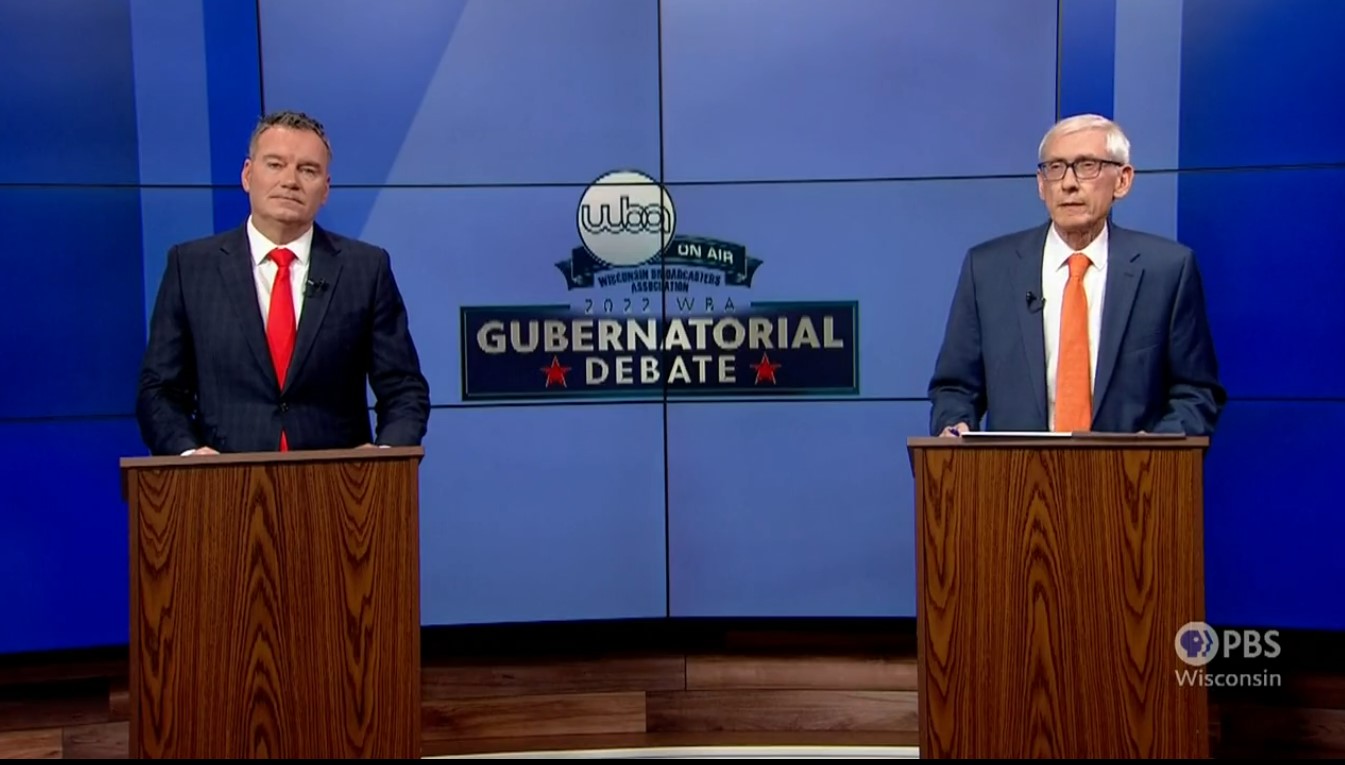GOP guv candidate Tim Michels vowed Friday to tell criminals there’s a “new sheriff in town” if he’s elected, while Dem incumbent Tony Evers dismissed his rival for talking tough and not having a plan to provide the state resources local law enforcement needs.
Michels during an hourlong debate accused Evers of failing to provide strong leadership on crime and said law enforcement doesn’t believe t...
Please log in to access subscriber content.
If you don't have a subscription, please contact schmies@wispolitics.com for subscription options on the WisPolitics-State Affairs platform, which is the new home for WisPolitics subscriber products.


